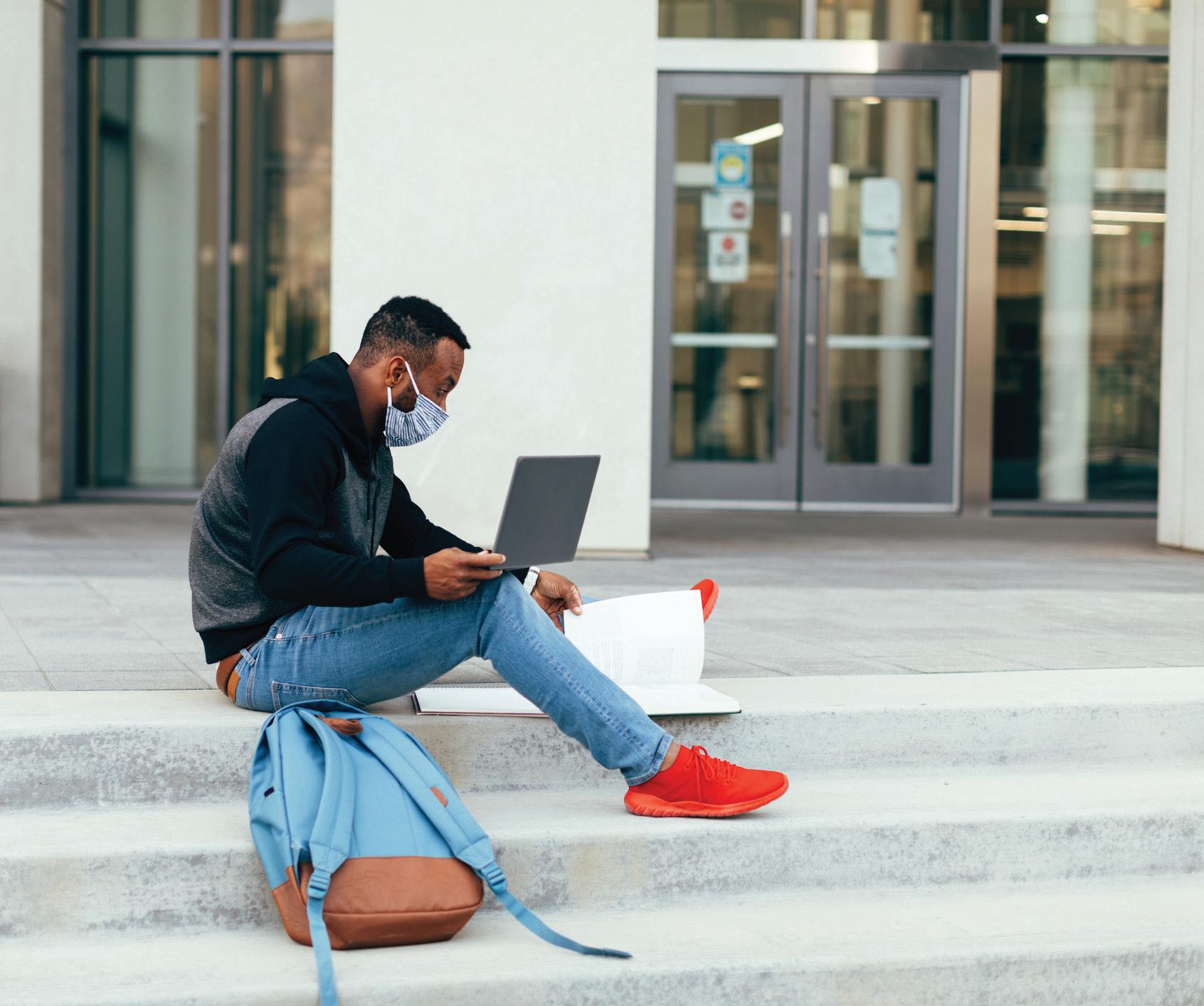
2 minute read
Young Men United
YOUNG MEN UNITED BREAKING DOWN BARRIERS FOR YOUNG MEN OF COLOR
Many male students of color don’t have access to the networks, supportive mentors, financial resources, post-secondary preparedness programs, and preprofessional experiences that lead to academic and career success, in part due to systemic and institutional barriers.
Students of color—particularly males—lag behind their counterparts on nearly every key indicator of educational and professional attainment.
Enter Young Men United: A new United Way equity and education initiative designed to close earning and learning gaps. It will help young men of color complete high school and explore and pursue college or post-secondary career paths.
THE JOURNEY BEGINS
The 2022–2023 school year holds new promise for a group of driven 10th-grade students at Benjamin Franklin High School and Patterson High School in Baltimore City. Twentyfive students at each school will begin a life-changing journey as the inaugural cohort for Young Men United.
Building upon each participant's strengths, Young Men United will dismantle barriers and connect the students to pathways that will provide them with greater financial stability throughout their lives—and fortify and diversify our local businesses and organizations.
Young Men United provides holistic support, from academic assistance to college and career preparation and application guidance, to mentorship, and resources for family members. United Way of Central Maryland recognizes that young men of color in Baltimore face several responsibilities outside of school such as jobs and families. The program is strategically designed to provide support to help them excel both academically and personally.
United Way wants these students to dream big. Each participant will be paired with a coach/mentor, an adult with similar lived experiences, to help them identify and articulate their goals and aspirations and develop a workable plan to achieve them. Program components include exposure to colleges and training programs, industries, businesses, post-secondary pathways, power skills, and professional development. This comprehensive program will also help develop a strong pipeline of engaged leaders who transcend in their careers and strengthen our workforce. Only 23% of Black men and 28% of Hispanic men in the Baltimore region have a bachelor’s degree or higher versus 47% of White men. College enrollment for Black men dropped 14.3% in 2021 vs 2020, as Black families disproportionately suffered from illness, job loss, and financial strain during the pandemic.









